The John Oxley Library has recently received a donation of a British copy of the German produced Lusitania medal. The medal has now been digitised and may be viewed through our catalogue.
The British Cunard Line passenger ship Lusitania was located off Old Head of Kinsale, a headland off the southern coast of Ireland, when she was torpedoed by a German submarine. She was traveling from New York to Liverpool and was near the completion of her voyage when tragedy struck. The ship sank in twenty minutes, killing 1201 men, women and children, including 128 American citizens. There were 761 survivors. The sinking turned public opinion in many countries against Germany and contributed to the American entry into the war.
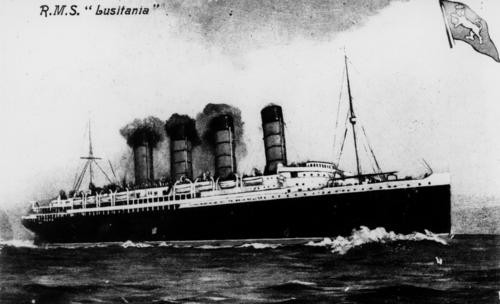
The Lusitania was launched by Cunard in 1906 and was one of the most luxurious, spacious and comfortable passenger liners afloat at the time. She was also fitted with revolutionary new turbine engines, able to maintain a top speed of 25 knots, and believed to be able to outrun any enemy submarines. This was not the case, however, as subsequent events so fatally proved.
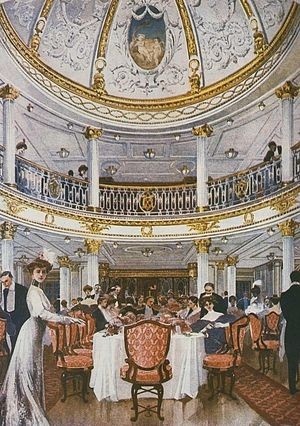
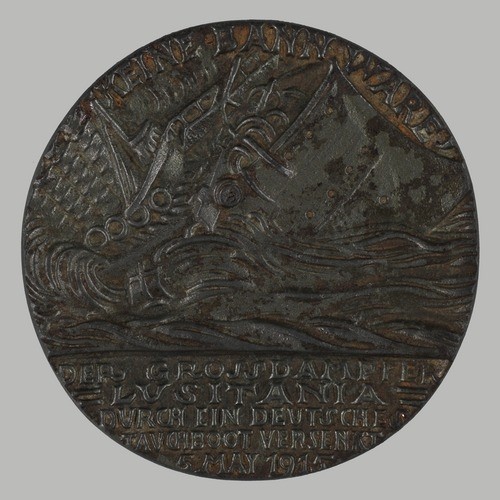
The obverse of the medal (see above) shows the sinking liner with her bow laden with armaments, still above water. Eye-witness accounts, however, stated that the ship went down bow first. The obverse text 'KEINE BANN WARE!', around the upper edge, is translated as 'No contraband goods'. The text in five lines in the obverse exergue 'DER GROSS-DAMPFER=LUSITANIA=DURCH EIN DEUTSCHES TAUCHBOOT VERSENKT 5.MAI 1915' is translated as 'The liner Lusitania sunk by a German submarine 5 May 1915'. The date was rectified in the second German edition of the medal to the correct date of 7 May.
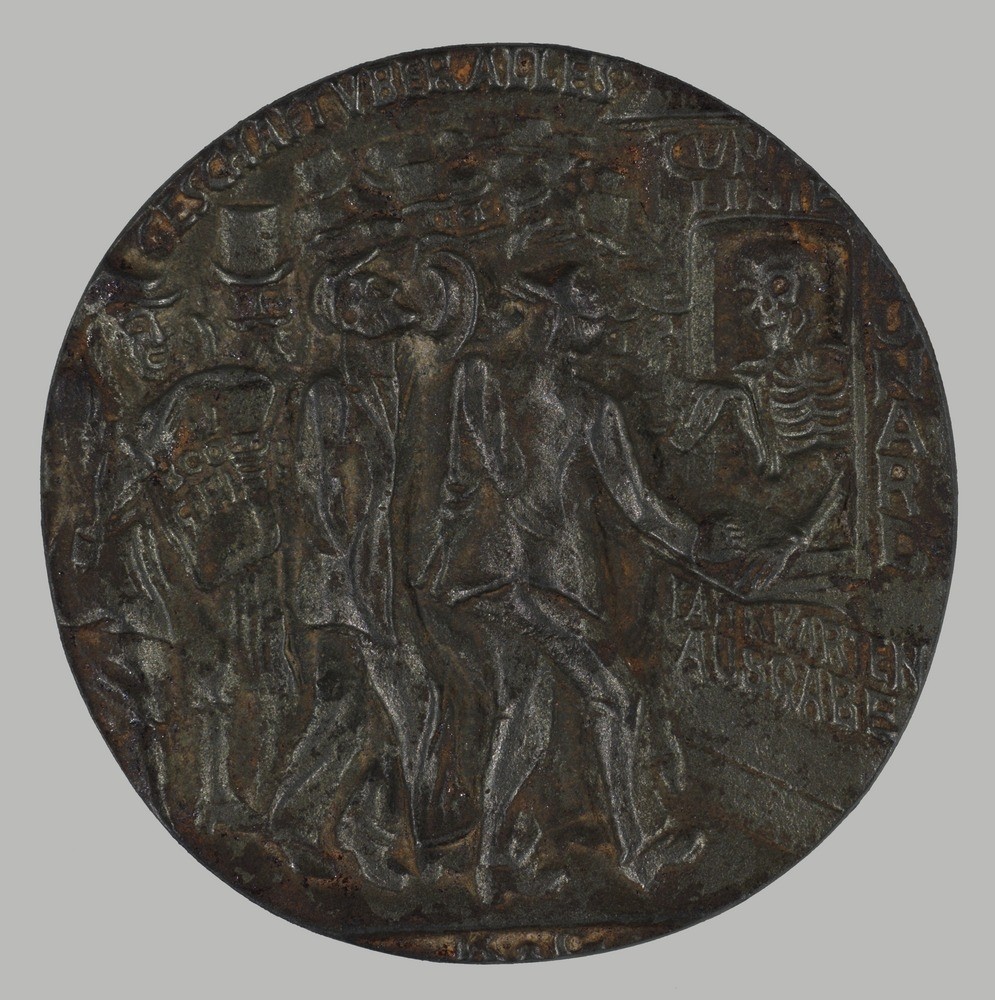
The reverse of the medal shows Death, in the form of a skeleton, serving a rush of passengers at the Cunard Line ticket office in New York. The German text on the reverse, 'GESCHAFT UBER ALLES', is translated as 'Business above all'. The Germans argued that the ship was transporting war materials and as such was a fair target for attack, and that the British Government and Cunard had placed profits and the transport of armaments ahead of the safely of the passengers. The Lusitania was carrying a large quantity of rifle/machine gun ammunition as well as shrapnel artillery shells. The Imperial German Embassy in Washington had also placed warnings of the dangers of Atlantic crossings in 50 American newspapers, including those in New York. The notice in New York newspapers was placed directly beneath travel information about the Lusitania.
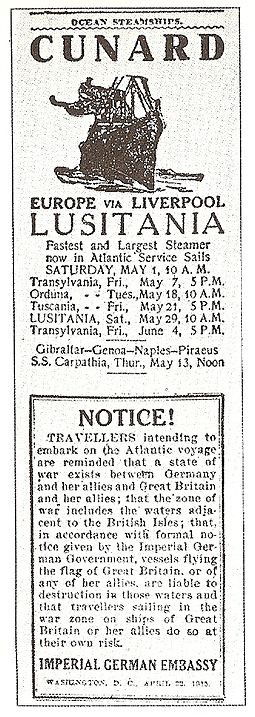
The Queenslander newspaper of 15 May 1915, p.20, contains the following information about the warning notices connected with the Lusitania incident:
"That the act was deliberate and premeditated is clear, for the officers and many of the passengers were warned of what would occur before the ship left the wharf at New York. There was quite a scene at the dock, and some of the intending passengers went ashore again rather than run the risk. Others tore their warnings to bits, and the captain of the vessel laughed at the idea of being torpedoed, as his vessel was too fast. The result shows clearly that Germany had planned the murder - for it was nothing less - and carried it out exactly in accordance with the plan."
The British Government retaliated against the sinking with a counter-propaganda campaign which included the wide distribution of copies of the Lusitania medal. The British copies were sold at a shilling each and were housed in an attractive presentation box with a hinged lid. Proceeds from the sales were donated to St. Dunstan's Blinded Soldiers & Sailors Hostels and the Red Cross.
The Lusitania medal (Accession 29574) is now part of the John Oxley Library Rare & Restricted collection and may be viewed online at: http://hdl.handle.net/10462/comp/3889
Lynn Meyers
Original Materials Librarian
Comments
Your email address will not be published.
We welcome relevant, respectful comments.